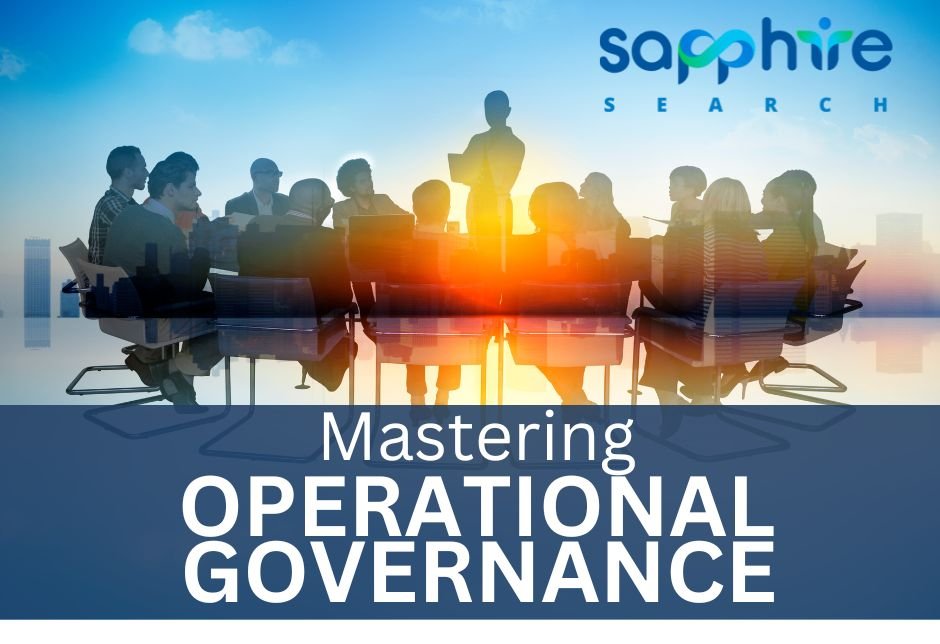As the global economy experiences fluctuations, it is crucial for business leaders to leverage operational governance as a strategic tool to adapt, enhance resilience, drive agility, and optimize resource utilization.
Adapting to Economic Fluctuations
During times of economic uncertainty or downturn, CEOs must be agile and proactive in their approach to operational governance. Leaders can quickly adapt their organizations to changing market conditions by leveraging robust governance frameworks. This may involve adjusting resource allocation, optimizing costs, or pivoting business strategies to maintain competitiveness and ensure long-term sustainability.
A well-structured operational governance system enables CEOs to make data-driven decisions, respond rapidly to market changes, and implement necessary adjustments to their operations. Organizations can navigate turbulent economic environments with greater confidence and resilience by fostering continuous improvement and adaptability.
One example of a company that successfully adapted to economic fluctuations is Lego. During the 2000s, the company faced declining sales and financial difficulties due to overexpansion and a lack of focus on its core product lines. However, under the leadership of CEO Jørgen Vig Knudstorp, Lego implemented a comprehensive operational governance framework that streamlined processes, reduced costs, and refocused the company on its iconic building blocks. By leveraging operational governance to adapt to changing market conditions, Lego was able to turn around its fortunes and become one of the most successful toy companies in the world.
Enhancing Organizational Resilience
Robust operational governance frameworks are essential for building organizational resilience in the face of economic shocks or disruptions. By having clear processes, controls, and decision-making structures in place, CEOs can better navigate turbulent economic environments and minimize the impact on their operations.
A resilient organization is one that can withstand external pressures, adapt quickly to changing circumstances, and emerge stronger from challenging situations. Effective operational governance enables leaders to anticipate potential risks, implement mitigation strategies, and ensure business continuity even in the face of economic volatility.
Despite facing intense competition from e-commerce giants like Amazon, Walmart has remained a dominant force in the retail industry by leveraging its operational governance framework to optimize supply chain management, streamline inventory control, and enhance customer experience. By continuously adapting its operational processes to changing market conditions, Walmart has maintained its profitability and market share even during periods of economic uncertainty.
Driving Operational Governance Agility
In a volatile economic landscape, operational agility is a critical success factor for organisations. Effective operational governance enables CEOs to make data-driven decisions, respond rapidly to market changes, and implement necessary adjustments to their operations.
Agile organisations are characterised by their ability to pivot quickly, experiment with new approaches, and learn from their experiences. By fostering a culture of innovation and continuous improvement, CEOs can empower their teams to identify and seize new opportunities in rapidly changing market conditions.
As the entertainment industry has undergone significant disruption due to technological advancements and changing consumer preferences, Netflix has consistently adapted its operational processes to stay ahead of the curve. By leveraging data analytics to optimise content creation and distribution, and by continuously refining its operational governance framework, Netflix has been able to rapidly respond to market changes and maintain its position.
Optimizing Resource Utilization
During periods of economic constraint, CEOs must prioritise the efficient and effective utilization of the organization’s resources, such as capital, talent, and technology. Operational governance plays a crucial role in ensuring that resources are allocated strategically and aligned with the organization’s priorities.
By leveraging data analytics, automation, and process optimisation, CEOs can identify areas for improvement, eliminate waste, and streamline operations. This not only helps to reduce costs but also enables organizations to maintain profitability and competitiveness even in challenging economic conditions.
Despite intense competition in the technology industry, Apple has maintained its position as a market leader by leveraging its operational governance framework to streamline product development, optimize supply chain management, and enhance customer experience. By continuously refining its operational processes and aligning resource allocation with strategic goals, Apple has been able to maintain profitability and market share even during periods of economic uncertainty.
Strategies for Effective Operational Governance
To effectively leverage operational governance in navigating economic fluctuations, CEOs should consider the following strategies:
- Implement robust performance monitoring systems to track key operational metrics and provide real-time insights to support data-driven decision-making.
- Foster cross-functional collaboration and information-sharing to break down silos and enhance the organization’s overall operational efficiency.
- Invest in technologies such as enterprise resource planning (ERP) systems, workflow automation tools, and data analytics platforms to streamline operational processes and improve decision-making.
- Empower frontline employees with the necessary authority, resources, and decision-making capabilities to address operational challenges and optimize day-to-day processes.
- Regularly review and refine the organization’s operational governance framework to ensure it remains aligned with the company’s strategic priorities and responsive to changing market conditions.
By effectively leveraging operational governance, CEOs can drive organizational success, enhance resilience, and optimize resource utilization, even in challenging economic environments. By embracing a culture of adaptability, innovation, and continuous improvement, organizations can navigate the complexities of today’s business world with confidence and agility.

